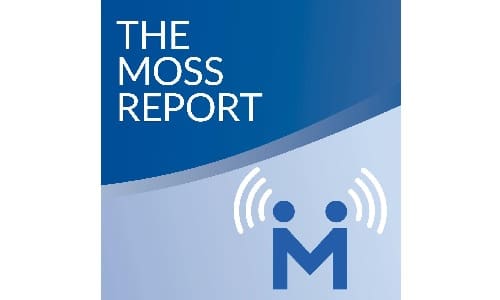The dried leaf or extract of the Artemisia annua plant or its natural derivative artemisinin are available as supplements with anti-inflammatory action. It is traditionally used as a malaria treatment.
How do experts use Artemesia annua and artemisinin?
Integrative experts provide recommendations for Artemisia annua and artemisinin in treating people with cancer. Learn more about the approaches and meanings of recommendations: Integrative Oncology Programs and Expert Guidelines ›
Clinical practice guidelines
Artemisia annua and artemisinin are not mentioned in the practice guidelines we consulted.
Published protocols, programs, and approaches
Artemisia annua and artemisinin are used in programs, approaches, and protocolsa package of therapies combining and preferably integrating various therapies and practices into a cohesive design for care from these integrative oncologists, drawing from both scientific research and observations from years or even decades of treating people with cancer.
Lise Alschuler, ND, FABNO, and Karolyn Gazella
Alschuler LN, Gazella KA. The Definitive Guide to Cancer, 3rd Edition: An Integrative Approach to Prevention, Treatment, and Healing. Berkeley, California: Celestial Arts. 2010.
Alschuler LN, Gazella KA. The Definitive Guide to Thriving after Cancer: A Five-Step Integrative Plan to Reduce the Risk of Recurrence and Build Lifelong Health. Berkeley, California: Ten Speed Press. 2013.
Uses of Artemisia annua and artemisinin:
- Head and neck cancer
- Prostate cancer
In her 2010 book, naturopathic oncologist Lise Alschuler, ND, FABNO, advises avoiding using artemisinin during radiation therapy and for an additional 30 days after therapy ends.1Alschuler LN, Gazella KA. The Definitive Guide to Cancer, 3rd Edition: An Integrative Approach to Prevention, Treatment, and Healing. Berkeley, California: Celestial Arts. 2010.
Keith Block, MD
Block KI. Life over Cancer: The Block Center Program for Integrative Cancer Care. New York: Bantam Dell. 2009.
The integrative Block Program has recommendations to people who are at different places along the cancer continuum:
- Those who’ve been recently diagnosed
- Those in treatment
- Those who’ve concluded treatment and need to remain vigilant to prevent recurrence
In his 2009 book integrative physician Keith Block, MD, advises: “Until we have more research, I advise not taking this herbal while you are undergoing conventional treatment.”2Block KI. Life over Cancer: The Block Center Program for Integrative Cancer Treatment. New York: Bantam Dell. 2009. p. 476.
Barbara MacDonald, ND, LAc
MacDonald B. The Breast Cancer Companion—A Complementary Care Manual: Third Edition. Self-published. 2016.
Naturopathic physician Barbara MacDonald provides information about breast cancer, its conventional treatment, and natural approaches to enhancing treatment, managing side effects, reducing risk of recurrence, and healthy living after cancer treatment is completed.
Uses of Artemisia annua and artemisinin:
- Liver metastases
- Immune modulator for preventing breast cancer recurrence
- Metastatic breast cancer
Neil McKinney, BSc, ND
McKinney N. Naturopathic Oncology, Fourth Edition. Victoria, BC, Canada: Liaison Press. 2020.
This book includes descriptions and uses of many natural and complementary protocols for cancer in general and for specific cancers. It also includes information on integrative support during conventional cancer treatment.
Uses of artemisinin:
- Breast cancer
- Carcinoid (gastrointestinal neuroendocrine) tumor
- Cervical cancer
- Colorectal cancer
- Esophageal cancer
- Liver and gallbladder cancer
- Lung cancer
- Lymphoma
- Multiple myeloma
- Nasopharyngeal, head and neck cancer
- Ovarian cancer
- Pancreatic cancer
- Prostate cancer
- Sarcoma
- Skin cancer
- Stomach cancer
- Thyroid
- Vulva cancer
Compatible with cetuximab
Works best when the patient is physically active
Best to avoid red meat and stop antioxidant supplements during treatment with artemisinin
Uses of Artemisia annua:
- Constipation
- Hormone balance
- Inflammation
Gurdev Parmar, ND, FABNO, and Tina Kaczor, ND, FABNO
Parmar G, Kaczor T. Textbook of Naturopathic Oncology: A Desktop Guide of Integrative Cancer Care. 1st edition. Medicatrix Holdings Ltd. 2020.
This book provides information on the treatment of 24 cancers, plus the most effective treatments of the most common symptoms affecting cancer patients while they undergo chemotherapy, radiotherapy, or surgery.
Uses of Artemisia annua and artemisinin:
- Melanoma following chemotherapy
- Remission maintenance
Traditional medicine
Artemisia annua is used in traditional Chinese medicine.
Learn more about traditional medicine and how to find practitioners: Finding Integrative Oncologists and Other Professionals ›
Other expert assessments
Moss Reports

Artemisia Annua – Artemisinin and Artesunate ›
Moss regards artemisinin as a promising, but not a proven, therapy.
Dosing
Exact dosage of the herb Artemisia annua in cancer has not been determined in clinical trials. Concentrations of the active ingredients vary among products.3Alschuler LN, Gazella KA. The Definitive Guide to Cancer, 3rd Edition: An Integrative Approach to Prevention, Treatment, and Healing. Berkeley, California: Celestial Arts. 2010. p. 388.
Integrative cancer care plans, protocols, and assessments listed above suggest doses:
- MacDonald B. The Breast Cancer Companion—A Complementary Care Manual: Third Edition. Self-published. 2016.
- McKinney N. Naturopathic Oncology, Fourth Edition. Victoria, BC, Canada: Liaison Press. 2020.
- The Moss Reports: Artemisia Annua – Artemisinin and Artesunate ›
Other sources also provide dosing information.
- Mihaela Catalina Stanciu Foundation for Life website: Artemisia annua, Artemisinin, & 2015 Nobel Prize in Medicine
- Natural Medicines Database (requires purchase)
General information about dosing
Find general dosing guidelines regarding natural products and supplements in Dosing Guidelines ›
References
